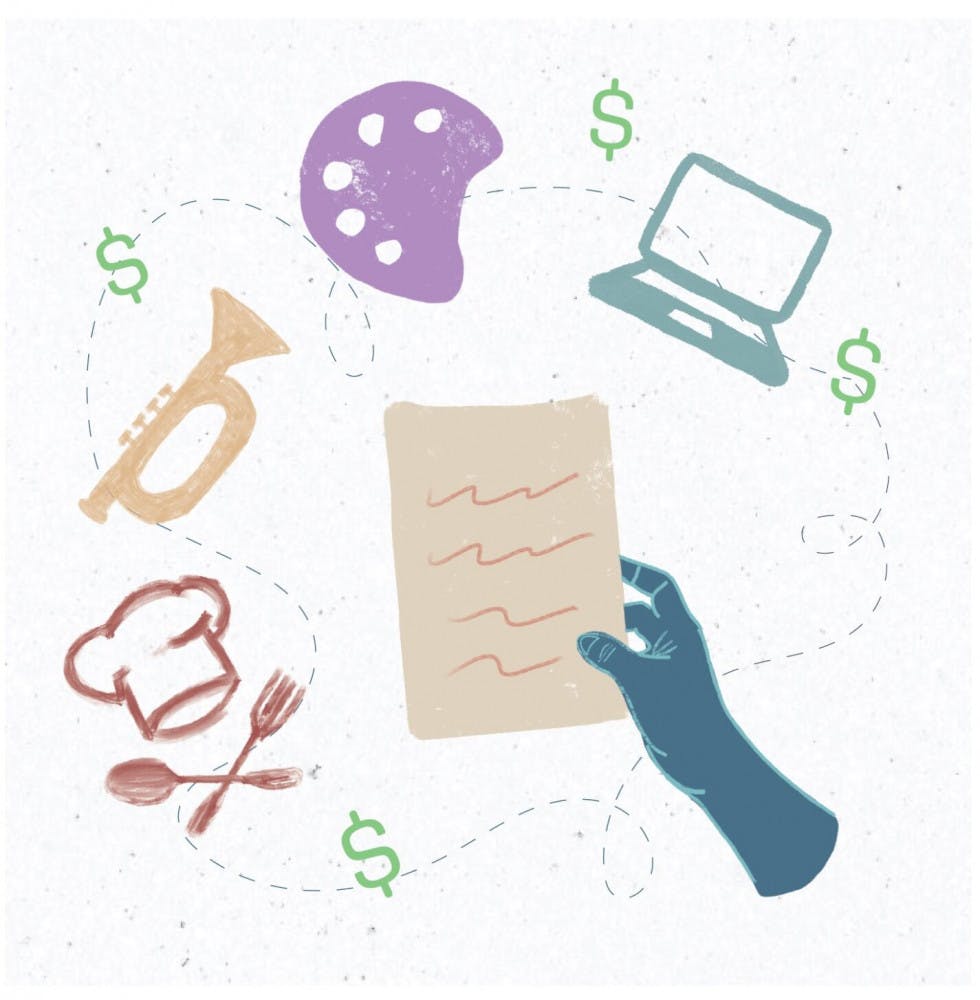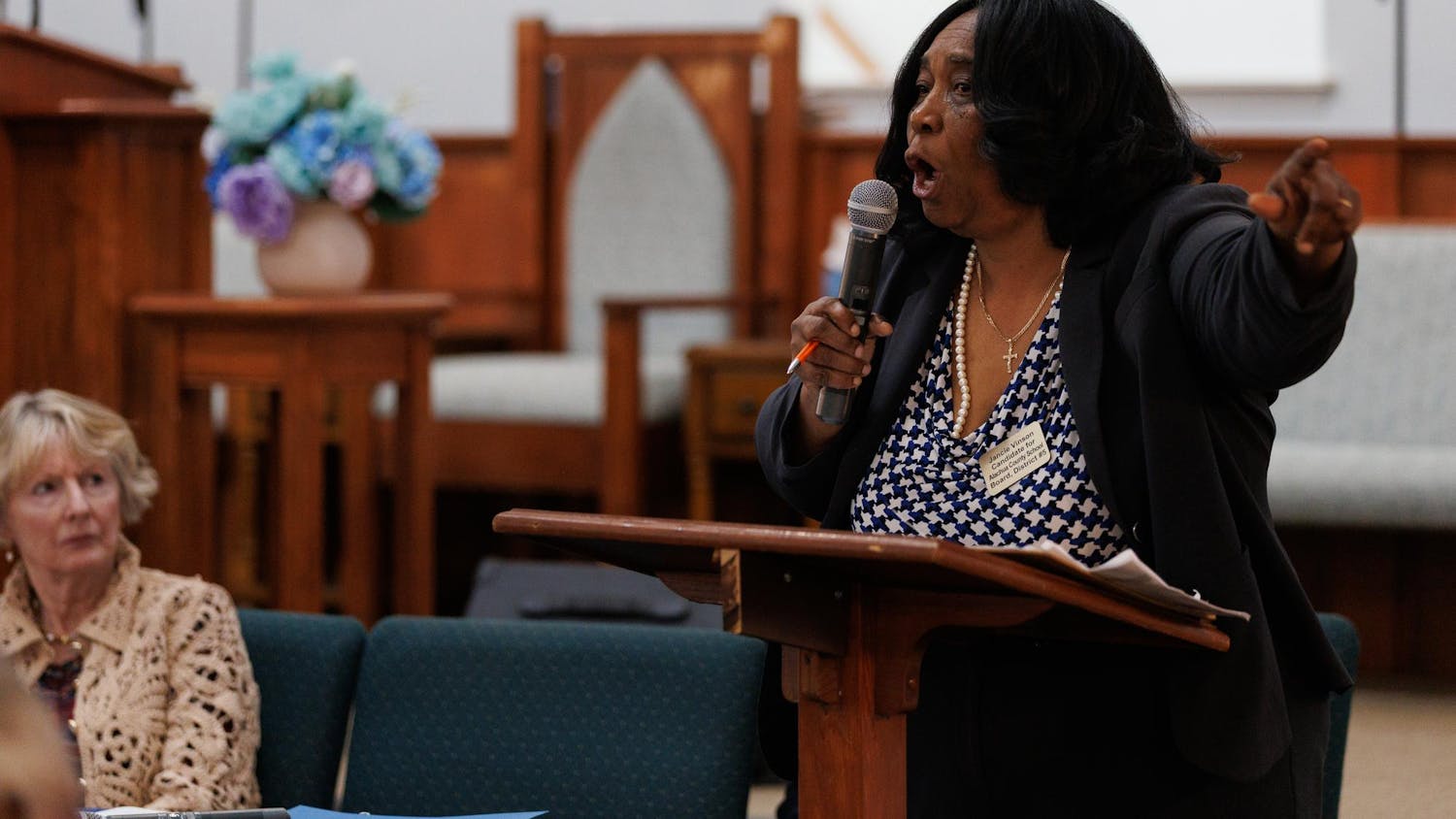
Florida has some of the lowest education funding in the U.S. A local measure on the November ballot could prevent program losses related to budget cuts and low funding.
The One Mill Ad Valorem Tax for School District Operating Expenses, a measure that supports arts and magnet programming, counselors, media specialists and technology in Alachua County Public Schools, is up for renewal. A “yes” vote would extend the tax from July 2021 to June 2025.
Residents have voted on the One Mill every four years since 2008 and passed it each time. More than 75% of voters supported it in 2016.
The measure funds music, career and magnet programs. It also covers partial or full salaries for teachers and specialists, such as music teachers, counselors and librarians. The tax, if reapproved, is expected to raise about $17 million for schools in the coming year.
The initiative is funded by imposing taxes at one mill, a tax rate. In this case, the tax rate is worth $1 for every $1,000 of the taxable value of owned property. It costs less than $7 per month for the average homeowner, according to the school board website.
Because it’s a renewal, the approval wouldn’t cost taxpayers any extra money.
Now, the initiative will also help address financial effects from the COVID-19 pandemic.
The pandemic has cost the school district about $16 million, which could be due to lower revenues as a result of less economic activity during the pandemic. Certain measures that provide the school district money earn funds through sales taxes, such as the Half-Cent for Schools, a different measure that supports facilities improvements. While the school district’s budget has increased this year, there are still challenges stemming from decreased state funding. This is largely due to cuts to property taxes, which fund schools.
ACPS incurred costs totaling more than $12 million from teacher training, personal protective equipment and extra technology purchases, ACPS spokesperson Jackie Johnson said.
“It’s important for people to recognize we are facing a critical financial crisis worse than we were facing when it was first approved during the Great Recession,” Johnson said.
The measure brought in more than $128 million for schools since 2009, according to a 2019 report from the One Mill Oversight Committee. It covers the salaries of over 300 employees and purchases of thousands of pieces of technology, ranging from computers to projectors.
The program is crucial for continuing programs that were at risk of being cut, Johnson said. During the Great Recession, the county’s music programs halved. With the tax, there is guaranteed funding to avoid that, she added.
For concerned voters, Johnson said the ballot language is very specific about where money is spent, Johnson said. An oversight committee reviews all expenditures to ensure money is spent as voters intended.
However, some voters are still worried about how the funds are used.
Chanae Jackson, a 41-year-old former East Gainesville resident, sends her daughter to private school because of the inequity she sees in public schools.
To Jackson, the initiative pushes a disproportionate amount of funding into magnet programs. About 32% of funding goes to magnets and career programs. Black students make up 35% of the school district’s population but only 13% of magnet students.
“Yes, we should say yes to the One Mill,” she said. “But then there should have to be a step two. And that step two is to require that the district give us a plan and to show us that the plan is going to be equitable.”
One Mill helps fund programs like the Institute of Culinary Arts at Eastside High School.
Students in the program learn everything about the culinary and hospitality industries, said Pam Bedford, director of the program. About 90% of her students ultimately end up in these sectors. She usually has about 100 students each year.
“Without this money, I don’t have a job,” Bedford said. “These students do not have this opportunity.”
The students might be seen catering with Centerplate, an event venue catering and hospitality services business, during game days at Ben Hill Griffin Stadium. Bedford wonders where her students would be without the program.
“We have to have it to keep these students engaged in learning,” she said. “You know, some of these students, this is the only reason they come to school.”
Erin Coolican-Dickman, a 39-year-old mother to a seventh grader at Fort Clarke Middle School, has seen the impact of the initiative. When in elementary school at Glen Springs, her daughter, Lily, got hooked on music. She joined the rock band club after school and learned to play guitar, the bass and even the drums. She now plays clarinet at Fort Clarke.
Coolican-Dickman said she already voted for the measure on her early mail-in ballot.
“I think that having a well-rounded student is more important than having just complete focus on academics,” she said.





